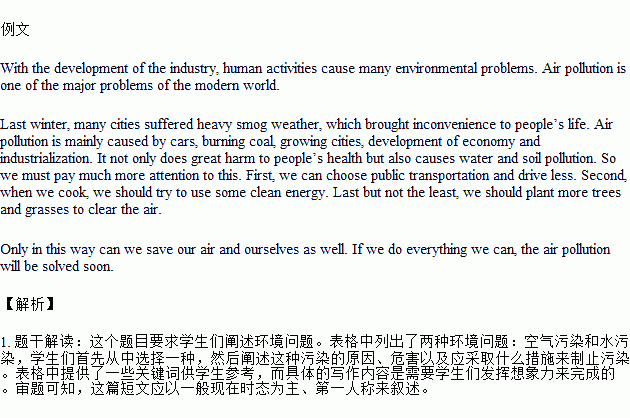题目内容
随着经济的快速发展,人类活动也对环境造成的比较大的污染。环境出现各种各样的问题。请根据以下表格选择一种阐述环境问题,造成该环境问题的原因以及减少污染的措施。
要求:1、从表格中选择一个阐述污染原因,污染的危害及措施;
2、短文条理清楚,行文连贯,内容可适当发挥;
3、短文不能出现真实的人名和地名;
4、词数不少于80,已给出句子不计入总词数。
Problem Badly polluted… | Causes | How to solve | |
Air | dirty, no more fish... | Burn coal, too many cars... | Public transportation… |
Water | Problem Badly polluted… | Throw rubbish, put the waste... | Clean up... |
With the development of the industry, human activities cause many environmental problems…___________________________________________________________________________________________________________________________________________________________________________________________________________________________________________________________________________________________________________________________________________________________________________________________________________________________________________________________________________________________________________________________________________________________________________________________________________________________________________________________________
 阅读快车系列答案
阅读快车系列答案
